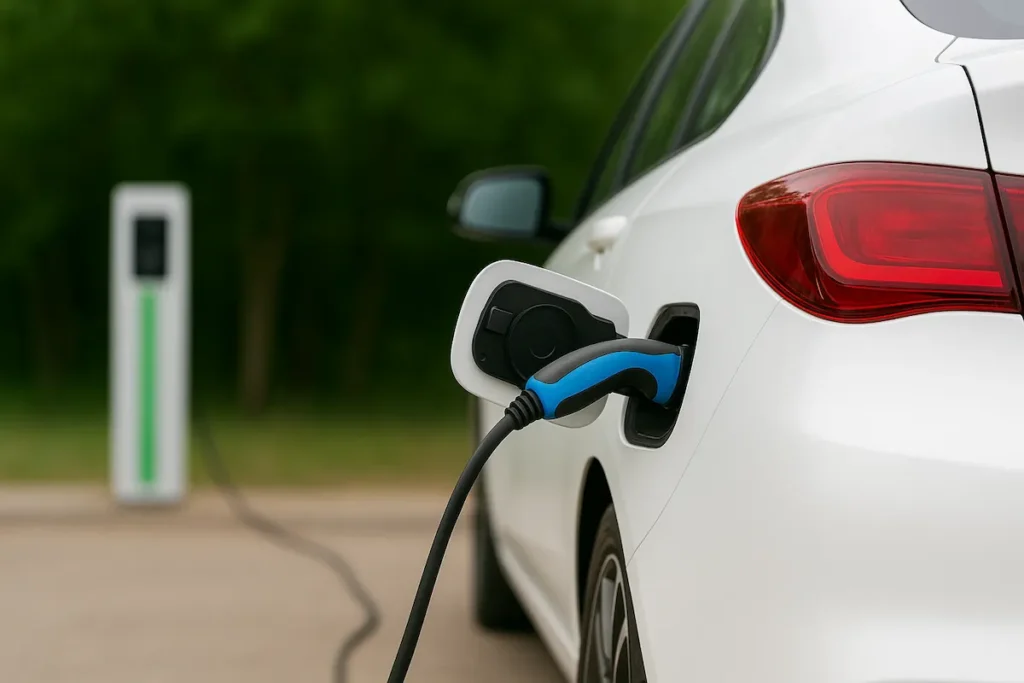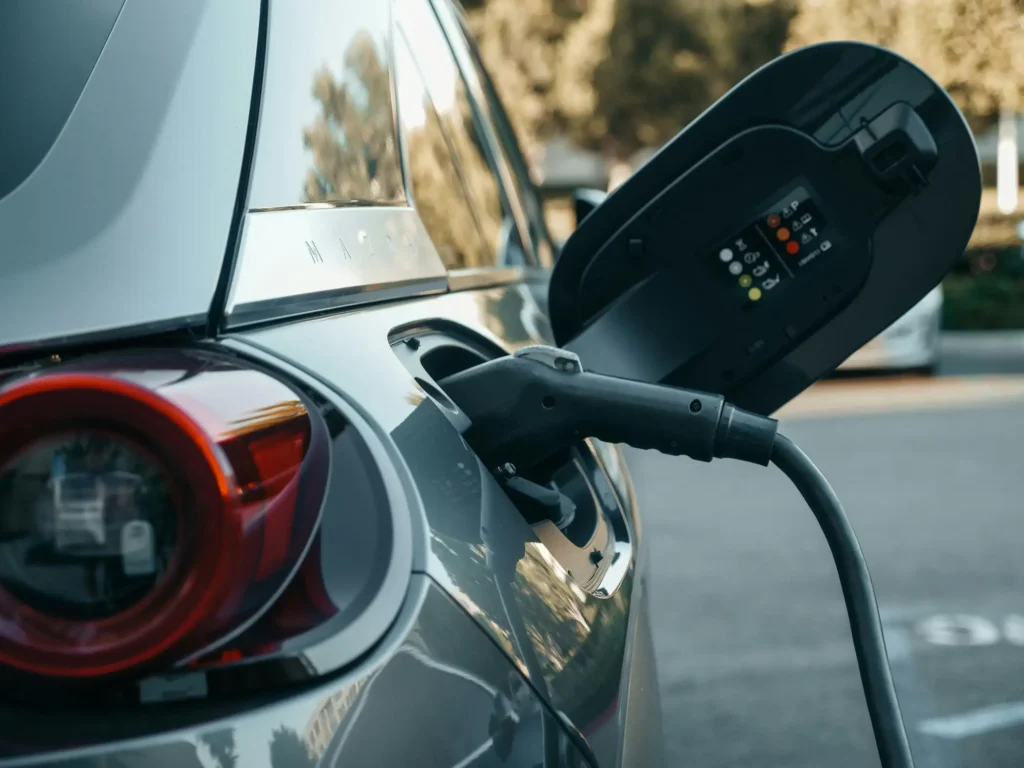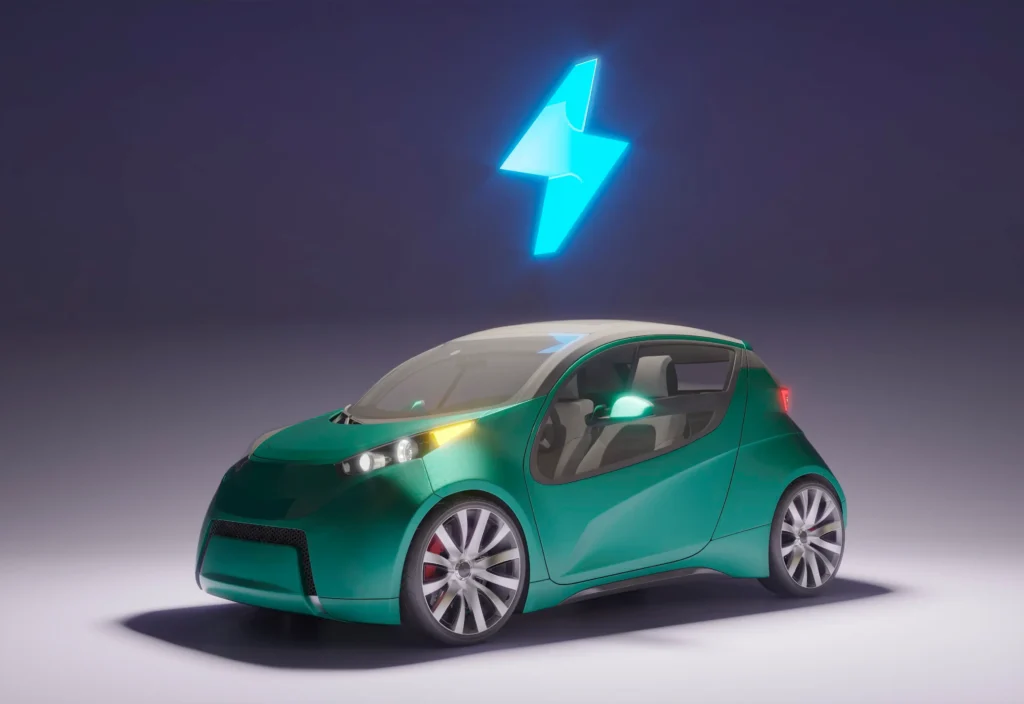Electric vehicles (EVs) are becoming increasingly popular, and one of the biggest questions drivers have is how long they take to charge. The answer depends on factors like charger type, battery size, and power source.
Summary
Charging an electric vehicle can take as little as 30 minutes with a DC fast charger or up to 8–12 hours with a Level 2 home charger, while a standard 240-volt outlet may require more than a day for a full charge.
The actual charging time varies by vehicle battery capacity, charger type, charging speed, and state of charge. For daily driving needs, home chargers are the most practical, while public chargers and rapid charging stations are best for longer trips where miles of range matter most.

Guide to EV Charging Levels
1. Level 1 Charging (Standard 120V Outlet)
The slowest but most accessible option is level 1 charging, which uses a standard 120-volt household outlet. It usually adds 2–5 miles of range per hour, which means a full charge may take 20–40 hours, depending on the vehicle battery capacity.
2. Level 2 Charging (Home or Public Chargers 240V)
Level 2 charging operates on a 240-volt outlet, commonly installed in homes and widely available at public chargers. It significantly reduces charging time, usually taking 8–12 hours for a full charge.
It is the most widely used option for daily charging because it typically adds 15 to 30 miles of range per hour.
3. Level 3 Charging (DC Fast Charging)
Level 3, also known as DC fast charging or rapid charging, delivers the fastest charging speeds. With power outputs ranging from 50 kW up to 350 kW, it can charge most EVs to 80% in 20–40 minutes.
For example, a Tesla Model using a Supercharger can gain hundreds of miles of range in under 30 minutes. However, not all vehicles support maximum charging speeds, as the charging rate depends on the vehicle’s battery and onboard system.
Factors That Affect EV Charging Time:
The amount of time it takes to fully charge an electric vehicle depends on several key factors. The most important ones include:
- Battery Size and Capacity: Larger EV batteries naturally take longer to charge than smaller ones because they store more energy.
- State of Charge (SOC): Charging from 20% to 80% is faster, while the last 20% usually slows down to protect the EV battery.
- Charger Type and Power Source: Using a Level 1 charger (120-volt outlet) may take more than a day, while a Level 2 home charger (240-volt outlet) can recharge in 8–12 hours. A DC fast charger or 350 kW public charger can add hundreds of miles of range in just 30 minutes.
- Charging Rate and Vehicle Limits: Each car has a maximum charging speed it can accept, so although you plug into the fastest charger, the vehicle’s onboard system may slow the process.
- Types of Vehicles: Plug-in hybrids usually charge faster than fully electric cars because their batteries are smaller.
- Weather and temperature can also affect charging speed, with extreme cold or heat slowing down the process.
In short, the charging speed depends not only on the charger but also on the vehicle battery, charger type, and power source working together.

FAQs:
1. When charging an electric car at a station, how long does it take?
The charging time at a public station depends mainly on the charger type. A Level 2 public charger (240V) typically takes 4–10 hours for a full charge, adding about 15–30 miles of range per hour.
In contrast, a DC fast charger (50–350 kW) can charge most electric vehicles to 80% in 20–40 minutes, making it the preferred option for long trips or quick top-ups. However, the exact time varies by battery size, vehicle charging capacity, and charging speed available at the station.
2. What is top-up charging?
Top-up charging means adding small amounts of charge to an EV battery whenever the car is parked, instead of waiting until it is nearly empty. For example, plugging in at home overnight or using a public charger while shopping are forms of top-up charging.
3. When charging an electric car at home, how long does it take?
Charging at home can take anywhere from 8 to 12 hours with a Level 2 charger (240-volt outlet), which is the most common setup for EV owners. Using a standard 120-volt outlet (Level 1) is much slower, often requiring 20–40 hours for a full charge.
The exact time depends on the battery capacity, state of charge, and charging speed your vehicle supports, but for most drivers, a Level 2 home charger provides enough range overnight for daily driving.
4. For what length of time does a plug-in hybrid require at home to charge?
A plug-in hybrid (PHEV) has a smaller battery than a fully electric car, so it charges much faster. Using a standard 120-volt outlet (Level 1), most plug-in hybrids take about 6–8 hours for a full charge.
The charging time typically decreases to 2–4 hours with a Level-2 home charger (240-volt outlet), making it simple to recharge during the day or overnight. Generally, PH EVs charge faster than full EVs, although the charging time varies depending on the battery size and charger type.
5. How long does it take to charge a Tesla?
Times depend on model and charger: on Level 2, expect 8–12 hours for a full charge; using a Tesla Supercharger (high-power DC), most drivers reach 80% in 20–40 minutes.
6. How does battery capacity affect charging time?
Bigger battery (kWh) = more energy to fill, so at the same charger power, a larger battery takes proportionally longer to reach the same SoC.
7. Does the weather affect charging time?
Yes. Very cold or very hot batteries often charge more slowly. Some EVs precondition the battery to speed up fast charging in cold conditions.
8. Where can I find the exact charging times for my vehicle?
Check the owner’s manual or manufacturer specs for battery capacity (kWh) and maximum charging rate, or use an EV charging time calculator with your model’s kWh and charger kW for a personalized estimate.
References
The information in this article is based on insights from respected organizations in the energy field. We have reviewed content from the following sources to ensure accuracy and relevance:

Posted by Abu Talha
With a background in science at the A-level, Abu Talha has studied subjects including physics, chemistry, mathematics, and biology. Along with his more than 1.5 years of experience in digital marketing, he is passionate about writing about electric vehicles, sustainable energy, and how emerging technologies are influencing the future.

